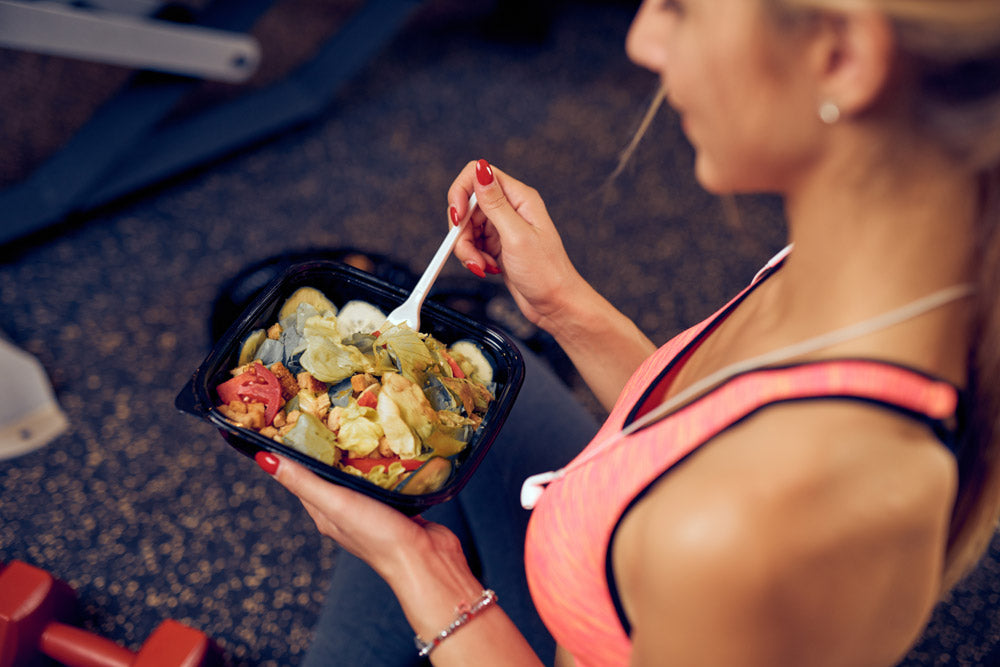A Perfect Machine
Our bodies are incredible. Thanks to untold centuries of evolution, our bodies have become resilient, efficient, and supple, and we can even improve their performance based on personal training and how we treat them. Want to get strong enough to do a pull-up? We can bulk up our muscles and slim down our waists. Want to decrease your likelihood of injury by increasing your range of motion? You can literally elongate your muscles and tendons through stretching and practice.
If we consider our own body as a machine, full of moving parts and automated processes, we have a responsibility to observe its upkeep so that it operates at the highest level. We wouldn’t expect our cars to run without fuel or electricity, nor would we want the engine working without oil to keep the gears and pistons intact.
As you get to know your body better, you’ll realize that its own engine block — the chest cavity wherein is found your vital organs — can technically run on any type of fuel (our bodies are incredibly versatile) but there is a good, better, best mentality we can take to improve performance.
The Importance of Nutrition Coaching
Just as a new chef must one day be brought into the kitchen and taught how flour, salt, fire, and water are combined to make bread, we as owners and operators of our bodies should learn how food interacts with our bodies to create strength and motion.
There is the old adage that a six-pack is shaped in the kitchen, not the gym, and that’s true. Any goals that we have for our bodies — be they aesthetic or performance-based — are made or broken, ultimately, by how we choose to eat and how we choose to supplement.
A Note About Eating for Pleasure
At the outset, it’s important to remind ourselves that eating for pleasure is not a sin, in and of itself. In fact, it has many important emotional and psychological benefits that can build upon the body’s need for strict refueling.
- It helps frame a positive relationship with food, which can often be forgotten by health-conscious people.
- The pleasure centers in our brains fire with good food, making us feel happy.
- Knowing you’re not cut off from the food you love actually helps you stick with healthy eating habits better.
The trouble with eating for pleasure is that, if done too much, the brain’s hormonal response can easily overpower the body’s satiation signals, causing overeating. The goal is to learn to unlock those pleasure responses from healthier food that carry less harmful effects. Personal training can help with this.
Fueling Up the Right Way
Using food the right way, so as to provide energy without hindrance to your body, takes two important qualities on the part of the athlete: having the right mindset to stick with it and form better eating habits, as well as having the proper functional training to know which habits are worth forming
When it comes to those proper fueling habits, we like to focus on a few areas:
- Hydration
- Balance
- Supplements
Let us spend a few minutes on each.
Hydration is Key
Cars need gas, our bodies need water. To expect one to run without the other is unthinkable. And yet, far too many people are cavalier about their water consumption — some even going days by just living off of soda and other liquid calories.
While there are general guidelines that doctors agree should dictate our water consumption — namely, 3.7 litres for men (about 16 cups) and 2.7 litres for women (about 12 cups) — you can also use math to figure out how much extra water you need before, during, and after your workout.
- Weigh yourself before and after your workout.
- Drink 16 oz. for each pound of body weight lost.
Start drinking water at least 4 hours before any strenuous activity and avoid chugging water during a workout.
A Balanced Diet is Best
So often when it comes to dieting, people feel that they need to cut out foods altogether. While it’s true that your body will run better with less processed sugar (considering that everything you ingest turns to sugar on its own), foods like carbohydrates have been overly maligned, while certain proteins have been overly celebrated.
The truth is that we need carbs, proteins, and fats in order for our bodies to fuel up properly. These are called macronutrients. Personal training with Performance One will help you to know how much of each your body needs to run well. Remember these tips regarding macronutrients:
- Carbs: Avoid processed grains and too much starch. Whole or cracked wheat, vegetables, and fruit provide the best type of carbohydrates.
- Proteins: Natural foods without chemicals are best. Avoid excessive amounts of red meat and nuts; white meat like chicken and fish is best.
- Fats: Lean meats have the best fats, as well as avocado, nut and seed oil, and olives.
Don’t Forget Supplements
Daily supplements are big business in the health food world, and for good reason. They help the body get nutrients that may be hard to come by during the day, or they provide the best version of those nutrients without unnecessary attributes. Some of the most popular supplements found in personal training include:
- Whey protein
- B-12
- Fish Oil
- Amino acids
- Creatine
The serious athlete considers supplements as a sort of secret weapon, integral to their refueling as water or food. If you have questions about how our supplements can help you, check out how they’re used in our various programs.
